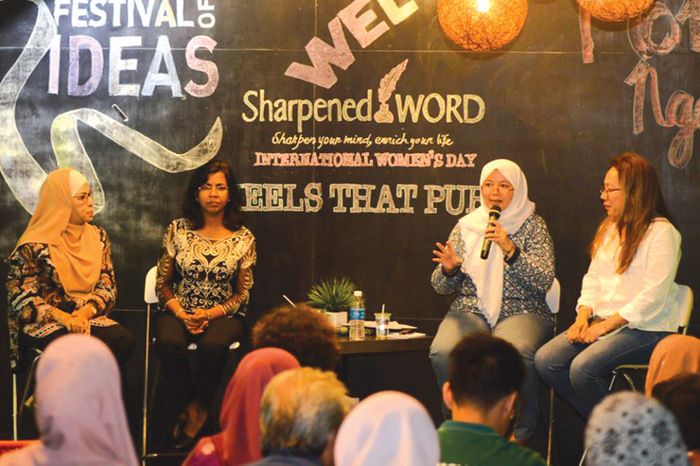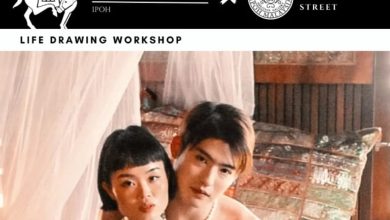Heels that Purr


In conjunction with International Women’s Day, Sharpened Word and Institut Darul Ridzuan (IDR) dedicated a special session to women in general. It was held on Saturday, March 17 at the IDR Knowledge Centre, from 2pm till 5pm. The talk, aptly titled, “Heels that Purr” showcased three speakers of different backgrounds who subscribe to a common goal – the empowerment of women. They were Dina Zaman, Chelvi Murugiah and Nor Azian Hashim.
Award-winning writer Dina Zaman was a columnist with New Straits Times before joining online news portals Malaysiakini and The Malaysian Insider. She is the co-founder of IMAN, a movement whose objective is to connect society to religion and perception in order to strengthen community resilience. She has written two non-fiction books, including her latest, “Holy Men, Holy Women: A Journey into the Faiths of Malaysians and Other Essays” which endeavour to discuss, liberally, the different beliefs in Malaysia.
“Malaysia is a nation of believers. The Asian culture is known to be ambitious, I know a lot of powerful Muslim women but I believe it goes beyond that. Some of us want to do so much for the country but how do we contribute? Why can’t we just do something simple and still make changes to the world?” Dina remarked.
Dina feels that Muslim women still have no identity and have not figured out what they want to be, politically or economically. However, when touching on the subject of interracial harmony, she believes that the country has hopes but cannot depend solely on the authorities for guidance.
“Go out, get to know each other and have a little adventure. The country might be facing problems but there are also many things to be happy about. Instead of constantly tormenting ourselves with negativity, let’s look at the happy side,” she posited.
As a Business and Marketing lecturer for Sunway Education Group, Ipoh and an active member of Perak Women for Women Society (PWW), Chelvi Murugiah refers to herself as a lifelong learner. While her work revolves around young people, she constantly reminds them about equality, education and contribution. She is currently pursuing her doctorate in Educational Management and has written a book, “Development of 21st Century Skills for the Digital Economy in Malaysia.”
“We should remove patriarchal roles in the society and let women progress. PWW is one good example of women empowering each other. We need to see more of this. There are no gender delineation in digital work. Malaysia has numerous opportunities and we need to start discussing out loud and hearing more from the non-Malays on how they feel about our policies that might affect their education. I like to look at a person as a human, rather than referring to them as a certain race or religion,” Chelvi said.
Chelvi thinks that some issues we face here may distort how the newer generations think and restrict us from being inclusive. Thus, more open discussions regarding these issues should be encouraged to gain respect from each other.
She opines that a timely start to women empowerment can begin by apportioning economic value to women who are homemakers, as they contribute to nation building, per se. Tax exemption is one way to encourage this.
From a librarian to public relations and sales, Nor Azian Hashim decided to quit full-time employment and become a stay-at-home mum cum writer. She has been a freelance translator for the last 25 years and is happy with how she manages her time. Her collection of thoughts and poetry, since the age of 17, is turned into a book at the urging of her daughter. It is titled, “Solid Liquid.”
“I’ve always been a literary person. My late father loved books and at the age of 12, I was already reading Reader’s Digest and gave my shot at short stories. Every woman has the right to decide and choose what makes them happy. I’ve been writing for as long as I can remember and consider English as a skill,” Azian exclaimed.
Being aware of diversity, she ensures her children live by the same views as she does. For her, it is important to inculcate and understand each other as we live in a diverse society. This understanding begins at home and education is the mantra.
Khaleeja


